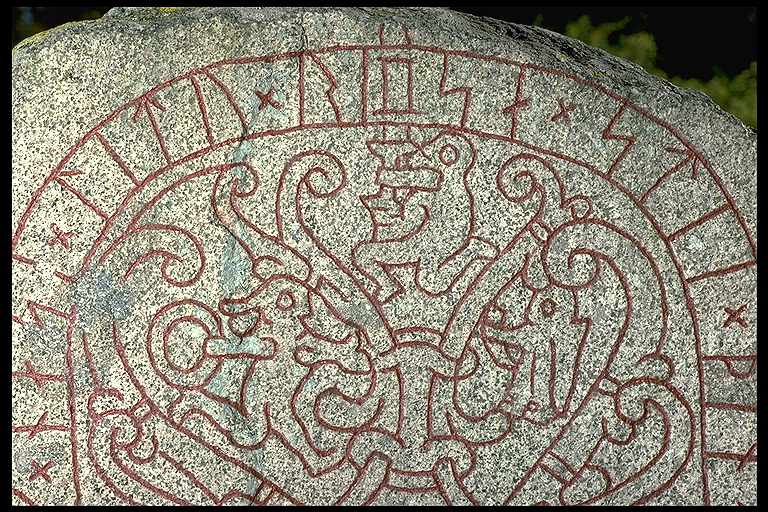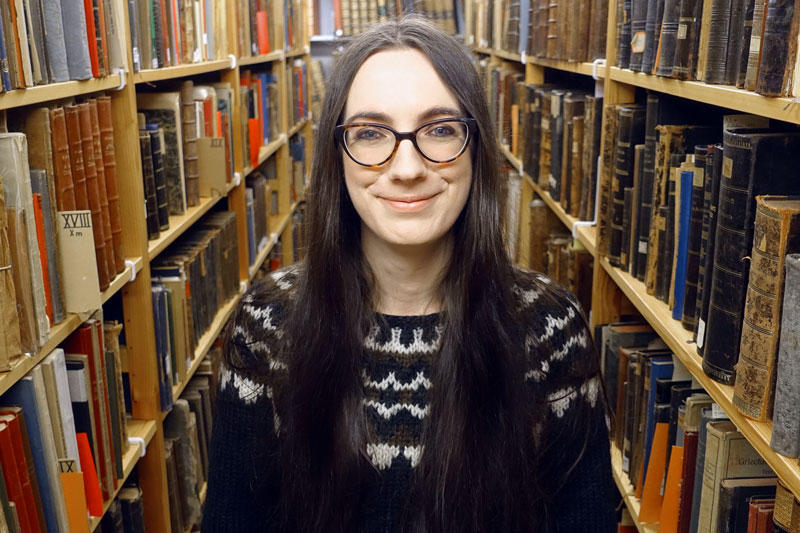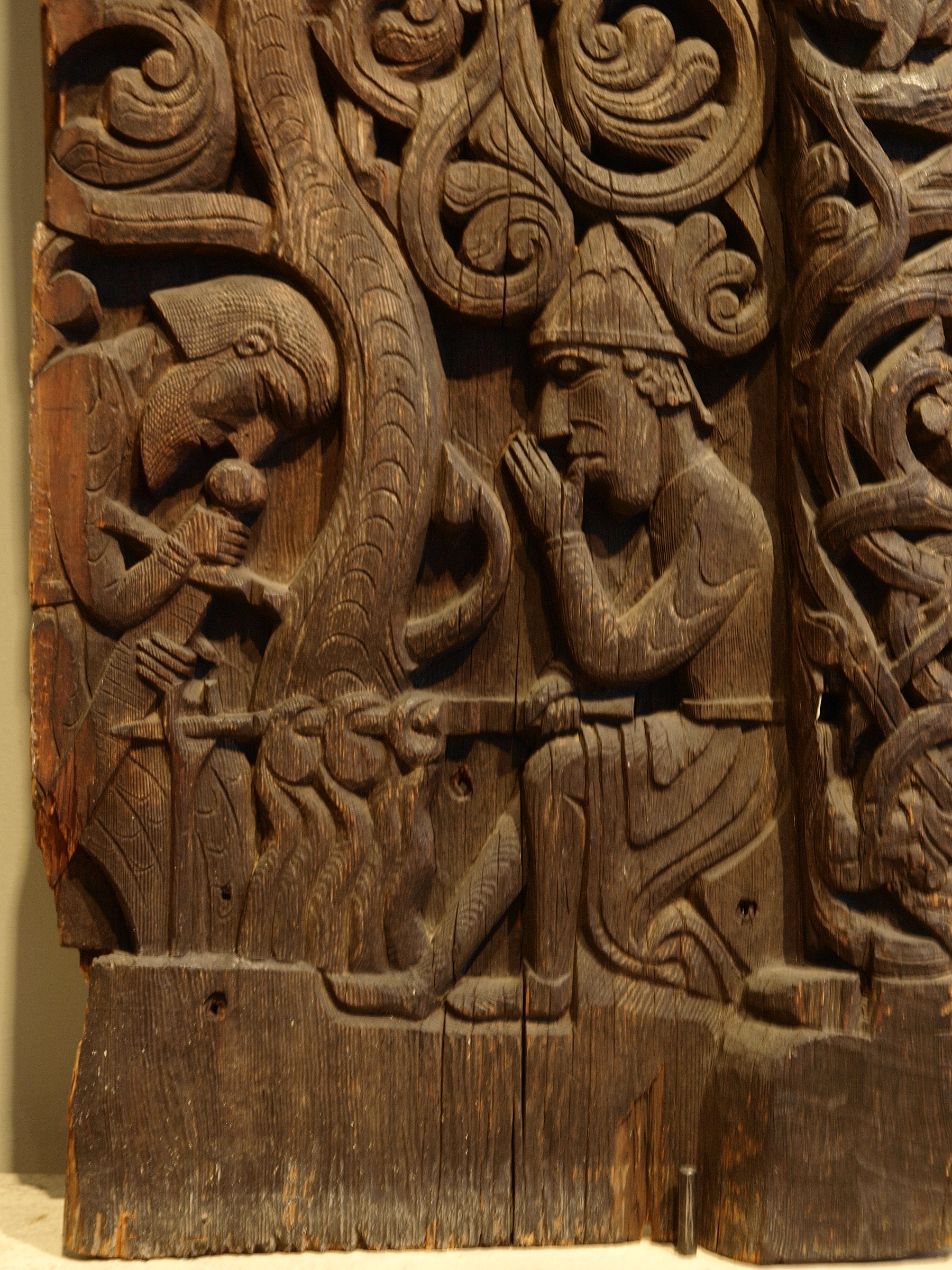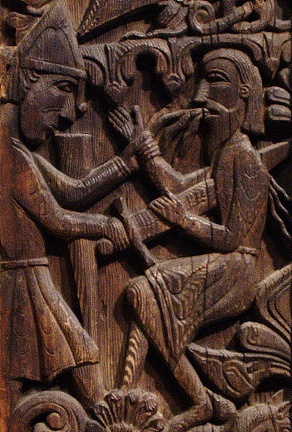Meet the Young CAS Fellows for 2021-23: Helen F. Leslie-Jacobsen

In her Young CAS Fellow project Ballads Across Borders: The Faroe Islands in the Norse Story-Telling World, University of Bergen (UiB) researcher Helen F. Leslie-Jacobsen will analyse the place of the Faroese ballads in the wider cultural context of the medieval North.

‘The Faroese heroic ballads are very understudied, so the project will begin to plug a large gap in research and make the material available to other scholars,’ Leslie-Jacobsen explains.
In addition to article publications, the UiB scholar plans for her Young CAS Fellow group to translate all the Nordic ballads concerning the Germanic hero Sigurðr Fáfnisbani, thereby making the material more accessible for further study.
‘Very few scholars research medieval Faroese ballads, leaving an untapped wealth of resources few can access due to the language barrier,’ Leslie-Jacobsen writes in her project proposal.
The project is one of the four Young CAS Fellow projects due to start in August 2021. The projects will last for two years.
- Read more about the Young CAS Fellow programme here >
- Read more about Leslie-Jacobsen and her Young CAS Fellow research project in norwegian here>
We spoke with Leslie-Jacobsen about her project and her thoughts about having been selected for the Young CAS Fellow programme for 2021-23.

Congratulations! Could you briefly tell us about your project?
My project is on medieval Faroese ballads, which are long dance narratives. The Faroe Islands are a small island nation to the west of Bergen with about 49,000 inhabitants. Their ballad heritage and the storytelling tradition it preserves from the Middle Ages is a unique and living tradition – the ballads are still sung and danced to today. The medieval ballads from the Faroe Islands are part of the Old Norse cultural world and are an unexplored source of stories about heroes and their exploits. Different forms of these stories are also preserved in other Germanic national literatures, for example in Icelandic sagas and in Swedish and Norwegian carvings — the legends go across borders and across media. Focusing on three of the long ballads about the hero Sjúrður Fávnisbani, my project will analyse the place of the Faroese ballads in their wider cultural context in the medieval North. The ballads are very long, and there are lots of different versions of the individual ballads recorded, making it even more exciting to study the different renditions of the texts. This is one reason why I was particularly pleased to be selected as a Young CAS Fellow – it affords us the time to look at the ballads in depth. In addition, since the Faroese heroic ballads are very understudied, the project will begin to plug a large gap in research and make the material available to other scholars.
Please tell us about yourself, your research interests and your career path.
I am originally British, and I took both a bachelor’s degree and a master’s degree in English literature at the University of Durham, where I learnt Old Norse and Old and Middle English. I left the UK for Iceland in 2007, where I took a second master’s degree in Medieval Icelandic studies (2008), before moving on to Norway in 2009. I completed my Ph.D. in Old Norse philology in Bergen (defended in 2013), focusing on the interplay of prose and verse in Old Norse heroic sagas. I have been fortunate to remain in Bergen since, where my research interests have developed into two main fields: one is medieval and early modern Norwegian law (I currently have a project in this area funded by Trond Mohn Stiftelse), and the other is heroic literature, of which the Young CAS Fellow project is a part.

Why did you apply to the Young CAS Fellow programme?
I applied to the Young CAS Fellow programme because it seemed such an excellent opportunity to gather a team of scholars to work on a really exciting and understudied subject. I think the results of the project will be a real boost to the field as well as to our careers.
What in particular are you looking forward to as a future Young CAS Fellow?
I’m particularly looking forward to bringing together the team of people to work on the project. I am keen to bring together scholars at different career stages, since I really believe in supporting early-career scholars, for example, and giving them opportunities to further their interests. I think the two-month research stay will also be a really valuable experience in terms of working on new and exciting themes. In addition, I am looking forward to seeing the published results of the project, since I think they will be really useful contributions to the field.